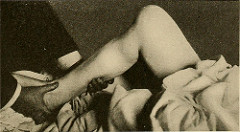The 5 most common immune system disorders are allergies, asthma, selective IgA deficiency, AIDS, and type 1 diabetes. Read on to find out a little bit more about each of these problems and how they may affect you.
1. Allergies affect over 20% of all Americans. Allergies occur when the body’s immune system reacts to a usually harmless substance as if it was a harmful substance. When an allergen is encountered, the body begins producing antibodies, which attach to a mast cell. The mast cells will form in airways or other locations to catch allergens. Incoming allergens will bind to the mast cell and cause the mast cell to start releasing chemicals to combat the allergen. One of these is histamine, which produces an itchy, runny nose in most people who have allergies.
2. Asthma is the result of an immune response in the bronchial airways. When an allergen is encountered by the lungs and airways, it triggers a reaction where the airways narrow and produce excess mucus. The exact reason that asthma occurs is not known, as it is essentially the immune system examining a common allergen and deciding that it doesn’t like it. Allergens that trigger asthma can include dust, smoke, and pollen, although there can be many other things as well. As of 2001, 9% of U.S. children under 18 years old had asthma, with that number growing yearly.
3. Selective IgA deficiency is the most common immunodeficiency. It occurs once in every 400-2,000 people. Selective IgA deficiency is a condition where a person’s B-lymphocytes, which produce immune system defense immunoglobulins, don’t produce IgA. IgA protects your eyes, mouth, throat, lungs, gastrointestinal, and genitourinary tract from infection. People with this disorder tend to have infections, allergies, and autoimmune diseases more than people without it.
4. AIDS, which is brought on by the human immuno-deficiency virus (HIV), is an immune system disorder where the HIV virus attacks and destroys the body’s disease-fighting T-cells. With a low T-cell count, an infected individual is exposed to all types of infections and diseases, many of which don’t affect people with normally functioning immune systems. The weak immune system of a person with AIDS cannot fight off the diseases brought from bacteria, fungi, parasites, and viruses and it usually results in death. In 2007, it was estimated that 33.2 million people had the disorder worldwide.
5. Type 1 diabetes is an autoimmune disorder where the body destroys its own insulin-producing cells. The cells are incorrectly determined to be foreign and the immune system attacks them, resulting in a deficiency. An estimated 5-10% of North American diabetics suffer from this type of diabetes.
About the Author
Jodi M. is a mom with a passion for keeping her family healthy. She highly recommends utilizing a full system approach to defending against the cold and flu. Her favorite product for every member of her family is an Immune Booster daily drink. Having a healthy immune system is a critical component of general health and well-being. Doux Soleil makes a scientifically advanced immune booster as part of a complete line of cold and flu products to help protect, support, fortify, and treat you and your family 365 days a year.

